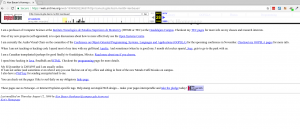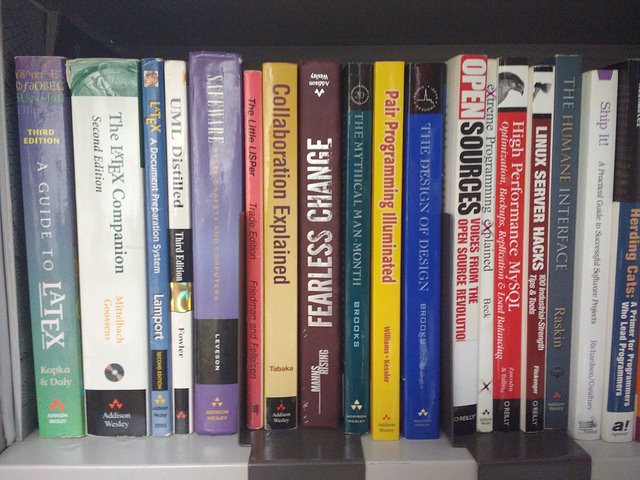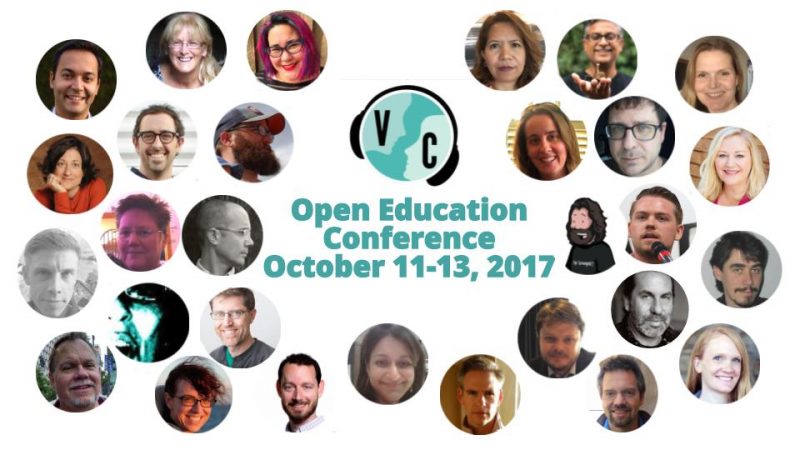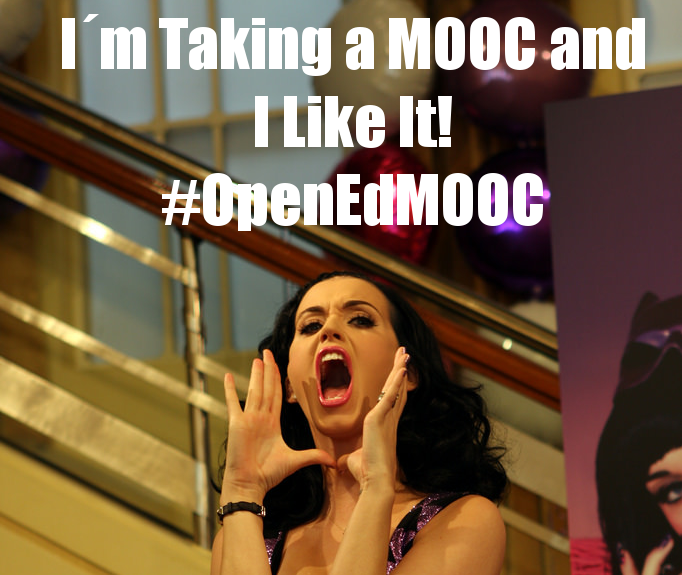I’m Taking an Open MOOC and I Like It.
An excellent opportunity to take a MOOC “Introduction to Open Education” (also available on the open web at #OpenEdMOOC) on the edX platform appeared on my radar over the summer. I was kicking around for months which platform to leverage for a reset of my #OpenFlip cMOOC which introduces learners to the four pillars of flipped learning with the Flipped Learning Network in collaboration with my institution the Tecnológico de Monterrey. When I landed at the edX page, it suggested this course for me.
The fact that this was led by David Wiley and George Siemens sealed the deal. Ever since I stumbled across their work a few years ago (more about that below) I have admired the work of both of these pioneers in open education.
You will also notice the ¨redundancy¨ of using Open in the title when it already says ¨MOOC¨. More below.
The Way Back Machine
I have been teaching since the mid 90s; first as a graduate students at the University of Washington´s department of Computer Science and Engineering and since 1995 as a professor of Computer Science at the Tecnológico de Monterrey in Guadalajara, Jalisco, México.
My formal training is as a computer scientist and particularly in software engineering. I took an interest in Linux as an operating system for my own machines (and later all of my server setups) back in 1993 when we would install Slackware from multiple 3.5 inch floppy disks. I was an early adopter of open source software and brought that to my students.

So I guess in a way I made open software a key to my teaching early in my career. My students from the 90´s still reference my push about anti-piracy and pushing them to look for open solutions. Let me explain why the mention of piracy besides the fact that it tends to be rampant for students. Many of us pirated software during high school and college, this author included.
This is where I make my key point about Open for myself: my open is about freedom (the Spanish translation being ´libre´) and not about the ¨free as in beer¨ (´libertad´) with a nod to Richard Stallman and the Free Software Foundation.
- Open is the freedom to share my work and practices to allow others to benefit from it.
- Open is the freedom for others to critique my work.
- Open is the freedom for others to build on my work.
- Open is showing my students that giving is just as important as receiving. Here a nod to Visitors and Residents and David White, Donna Lanclos, Lawrie Phipps and others.
- Open is also showing my colleagues (locally and internationally) the same.
- Open is a core philosophy of my pedagogy and andragogy.
I like to emphasize Open MOOC here since I have seen too many MOCs that are not open in my opinion.
Late to the Party
I came across the open education community just recently (December 2014) when I stumbled across the work of Alan Levine and Brian Lamb and their course The You Show that they developed for Thompson Rivers University. That led to looking up the work of Jim Groom, Howard Rheingold, Martha Burtis, Audrey Watters, Laura Gogia, Maha Bali, Ben Werdmuller, Kin Lane and this list could go on forever.
It led to my attending #OpenEd16 (blog posts here and here) and in a way #OpenEd15 through the work of Tannis Morgan and the award winning #UdgAgora project that she organized and I had the fortune to participate in via an invite by Alan Levine. You can view my story about this in original form or in Alan´s keynote.
I knew about Creative Commons in early days and was excited. Again I look back on my fourteen year volunteer history with the OOPSLA conferences and in particular the keynote at OOPSLA 2003 by Lawrence Lessig titled ¨Free Culture: The limited but essential role of property in building an environment for creativity¨. I was the Internet Technology Chair that year and jumped at the chance to have a (short) discussion with Dr. Lessig.

One of the resources suggested for this week ¨The Cathedral and the Bazaar¨ is an essay from the book ¨Open Sources: Voices from the Open Source Revolution¨ which has been on my office shelf (and read by myself twice and lent to students many times). Again, I see the links between my past and present.
Why did I not seek out this community earlier? We won´t know but I sure am happy to have found these people. You all make me a better educator.
I find it interesting that my first formal introduction to #OpenEd and #OpenLicenses was in Anaheim in 2003. This week I return to Anaheim to attend #OpenEd17 and help coordinate the VConnecting onsite presence of another important community Virtually Connecting.

Colophon
This blog post was publishing use WordPress, images prepared using Gimp and written on my home Kubuntu Linux desktop machine. All of those being open source projects
Feature Image Credit

Meme created with original image katy perry purr flickr photo by Eva Rinaldi Celebrity and Live Music Photographer shared under a Creative Commons (BY-SA) license
Ken:
If you are late to the party, then it is a grand entrance you are making. I have a feeling the open education community may be attending your open after party.
I really appreciated your openness to peer review. I consider that a huge stumbling block for many educators considering a dip or dive into open education. For a process, education, the majority of us go through (if we are privileged enough to be born in certain parts of the world) very few of us reflect back on the experiences ~ the highs and hurdles ~ that can inform our own practice and ultimately open us up to better receive constructive criticism.
And thanks for including the bookshelf pic; I love seeing what’s on people’s shelves. I am curious about Collaboration Explained; it now in my mix.
First, I apologize for taking so long to approve this comment and second thank you for taking time to write here.
Perhaps I can be more cavalier (or crass) in my views on peer review since my position and advancement doesn’t hinge on my publishing pipeline when the careers of others are pivoting on that.
Thanks for picking up on the bookshelf, this is a shot from my own bookshelf in the office. I’ll have to dig into more details about that particular book later (I’m traveling at OpenEd17) and am pretty sure that book is from the 90s. My closing-in-on-50 memory is failing me right now.
Hi Ken, very interesting to read your philosophy about “Open”, that is not only about open source or open software. Its an Open thinking in how we understand share and receive, and a freedom to make important contributions like constructive critics, very important to improve in any topic. Do you think that this concept is part of tha innovation process?
Thank you for the comment here Elena. I am a firm believer that innovation comes from below with support from above. An open process gives more opportunity for our colleagues to contribute to like initiatives and contribute together.
yup – in many ways, the measure of an effective open course is the network that persists after you’ve “not finished” the course.